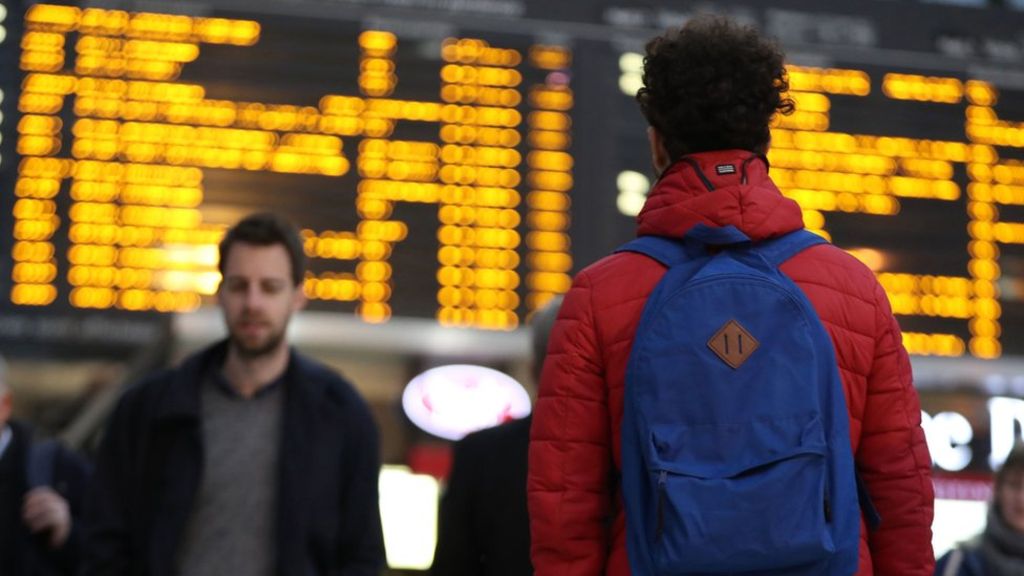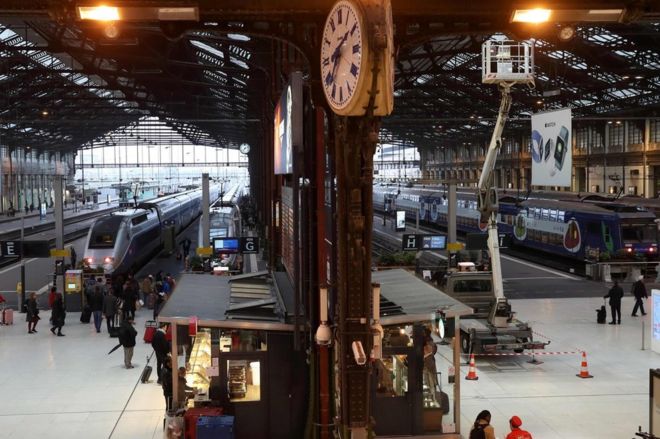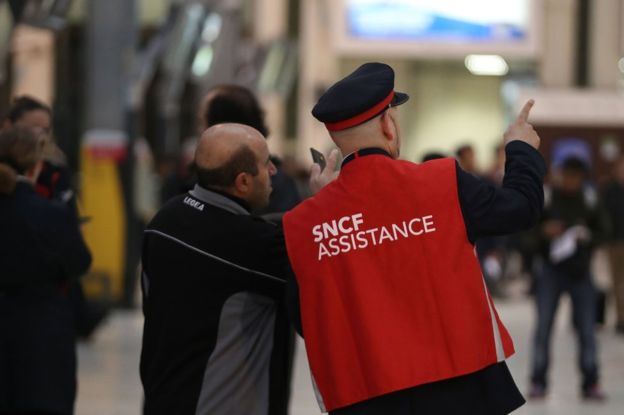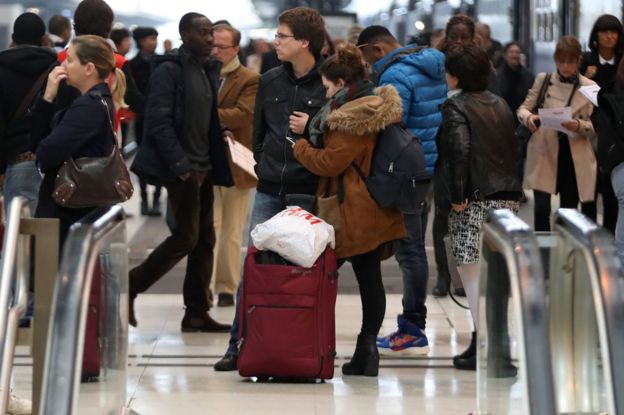France industrial unrest: Open-ended strike brings rail misery

An open-ended rail strike is under way in France just nine days before the country hosts the Euro 2016 football tournament.
Only 60% of high-speed trains and between a third and a half of other services are expected to run, according to the state rail company (the SNCF).
Trade unions are protesting against work time changes but the strike comes amid general labour unrest.
The wider protests are over a bill to shake up the labour market.
The bill comes before the Senate this month, having passed through the lower house without a vote.
France's Socialist President, Francois Hollande, insists it will not be withdrawn despite months of unrest which erupted into street clashes between protesters and police at marches last Thursday.
Leading conservative opposition politician Nicolas Sarkozy has accused him of getting "everything wrong from the start" in his handling of the crisis.
"Pushing [the bill] through by force cuts out debate," the former president said in an interview with magazine Valeurs Actuelles, due to be published on Thursday.
"If you don't accept the debate of ideas in parliament, then it moves to the streets."
French labour reform bill — main points
The 35-hour week remains in place, but as an average. Firms can negotiate with local trade unions on more or fewer hours from week to week, up to a maximum of 46 hours.
Firms are given greater freedom to reduce pay.
The law eases conditions for laying off workers, which is strongly regulated in France. It is hoped companies will take on more people if they know they can shed jobs in case of a downturn.
Employers to get more leeway to negotiate holidays and special leave, such as maternity or for getting married. These are currently also heavily regulated.
'You think of gullets and your pay'
Strike action led by the powerful CGT union began on Tuesday evening — the eighth railway strike in France in three months.
High-speed services to the UK and Germany (Eurostar and Alleo) are said to be normal but just 40% of Ellipsos services to Spain and a third of SVI services to Italy are expected to run.

Commuters vented their anger with the SNCF on social media. For one, the journey to work was "worse than travelling to another continent".
Another wrote, "You think of your stomach and your pay… What about thinking of us now and again?" while someone remarked, "Oh lovely. Even the ticket machines are on strike."
However, a poll in the Journal du Dimanche newspaper suggests 46% of French people still support the unions' calls.
Jean, a pensioner from the southern city of Marseille, told AFP news agency he "wholeheartedly supported" the strikes despite delays to his train journey.
The dispute centres on proposed changes to weekly rest provisions for train drivers.
The CGT has also called for a strike on the Paris Metro and other public transport services in the capital on Thursday but the disruption is expected to be minimal.
"This week will see the strongest mobilisation in three months" of strikes, CGT leader Philippe Martinez said on Tuesday evening.
Air transport is also expected to be disrupted this month by industrial action not linked directly to the labour law reform.
A strike at oil refineries continued on Tuesday but fuel supplies to petrol stations have improved markedly, AFP reports.
The next national day of action by trade unionists is due on 14 June, when the labour reform goes to the Senate.
Политика конфиденциальности | Правила пользования сайтом









